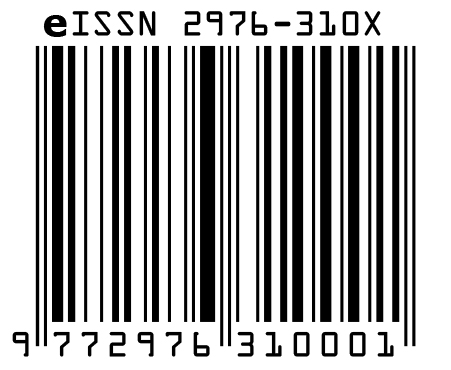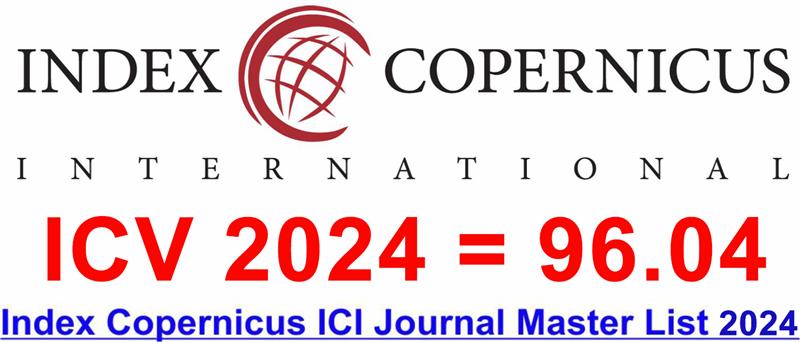Barriers to Implement ICT By Primary School Teachers in Private Schools Based in Muscat (Oman)
DOI:
https://doi.org/10.60072/ijeissah.2023.v2i01.011Abstract
Background: The development of technology in recent years has changed the ways humans used to live. Technology is undoubtedly contributing to enhancing the quality of lives of individuals, whereas Education is no exemption from it, as technology is also contributing to enhancing the quality of Education. The utilization of technology in Education increased during COVID-19, when pupils were taking their education through different electronic mediums. Therefore, the aim of this study was to investigate the barriers to implementing ICT by primary school teachers in private schools in Muscat, Oman. Methods: The five-scale Likert scale questionnaire was used as a data collection tool to collect the data from 200 recruited participants, and the collected data was analyzed using SPSS, and descriptive statistics were used for interpretation of the data. Results: The findings underline different factors like the absence of assets, lack of preparation, and protection from change that obstruct the viable execution of ICT. The meaning of this review lies in giving bits of knowledge about the difficulties faced by primary teachers in private schools in Muscat, consequently adding to the current writing on ICT reception in the training area. Conclusion: To increase ICT adoption, the study's conclusions emphasize the need for enhanced training programs. This study’s future repercussions include influencing policy decisions and directing the creation of specific interventions to encourage successful ICT implementation in private schools.
Keywords:
Diffusion of Innovation Theory, Social Learning Theory, Technology Acceptance Model, Information Communication TechnologyReferences
Almalki, G., & Williams, N. (2012). A strategy to improve the usage of ICT in the Kingdom of Saudi Arabia primary school. International Journal of Advanced Computer Science and Applications, 3(10).
Al-Aghbari (2019) Potential use of structural skirts towards improving the bearing capacity of shallow footings exposed to inclined loadings, 15(10): 1-6 https://doi.org/10.1080/19386362.2019.1617477
Al Ghaithi, A., & Behforouz, B. (2023). The effect of corrective feedback via a computerized course on omani efl learnerswriting performance. Turkish Online Journal of Distance Education, 24(1), 74-87. https://doi.org/10.17718/tojde.1025572
Al-Hunaiyyan, A., Alhajri, R. A., & Al-Sharhan, S. (2016). Perceptions and Challenges of Mobile Learning in Kuwait. Journal of King Saud University-Computer and Information Sciences, 30, 279-289. https://www.scirp.org/(S(i43dyn45teexjx455qlt3d2q))/reference/referencespapers.aspx?referenceid=2635616
Al-Mekhlafi Al-Mashkoor (2018) ‘Learners Metacognitive Awareness of Reading Strategies’, 11(2) 297-308
Al-Shehri & Al-Khalidi (2017) A Developmental Paradigm for English Language Instruction at Preparatory Year Programs. 8(3) 2017.
Al-Rahmi, W. M., Alzahrani, A. I., Yahaya, N., Alalwan, N., & Kamin, Y. B. (2020). Digital communication: Information and communication technology (ICT) usage for education sustainability. Sustainability, 12(12), 5052. https://doi.org/10.3390/su12125052
Al-Senaidi, S., Lin, L., & Poirot, J. (2009). Barriers to adopting technology for teaching and learning in Oman. Computers & education, 53(3), 575-590. https://doi.org/10.1016/j.compedu.2009.03.015
Anmary, A. S., & Mohammed, L. A. (2022). The Effect of Video Presentations on Achieving Academic Performance Among ESL Students in Malaysia. International Journal of Emerging Issues in Social Science, Arts and Humanities (IJEISSAH), 1(1), 52-56. Retrieved from https://ejournal.lucp.net/index.php/ijeissah/article/view/1809
Asianoa, R., Kuupille, F., Segbefia, S. K., & Asenso, J. A. (2022). Examining the Integration of ICT into Teaching and Learning: A Study of Colleges of Education in the Volta Region. Integrated Journal for Research in Arts and Humanities, 2(6), 15-24. DOI: https://doi.org/10.55544/ijrah.2.6.3
Aslan, A., & Zhu, C. (2015). Influencing Factors and Integration of ICT into Teaching Practices of Preservice and Starting Teachers. https://files.eric.ed.gov/fulltext/EJ1105123.pdf
Balliammanda (2021). Perceptions of teachers on teaching and learning with mobile devices in higher education classrooms in Oman: A pilot study. Studies in Technology Enhanced Learning, 1(2). https://doi.org/10.21428/8c225f6e.daa1c7dc
Bharwani, V., & Mohammed, L. A. (2023). The Effect Of Prolonged Online Learning On Students’ Performance Post Locked Down During Covid-19 Pandemic. Jurnal Multidisiplin Indonesia, 2(10), 3399-3445. https://doi.org/10.58344/jmi.v2i10.630
Das (2019). The Role and Impact of ICT in Improving the Quality of Education Applications, vol. 3, no. 10, pp. 42-49, 2012. Retrieved June 26, 2016 https://ijissh.org/storage/Volume4/Issue6/IJISSH-040611.pdf
Ertmer, P. A., Ottenbreit-Leftwich, A. T., & Tondeur, J. (2014). Teachers' beliefs and uses of technology to support 21st-century teaching and learning. In International handbook of research on teachers' beliefs (pp. 403-418). Routledge.
www.researchgate.net/publication/294736258_Teacher_Beliefs_and_Uses_of_Technology_to_Support_21st_Century_Teaching_and_Learning
Ghadyani, F., Tahririan, M. H., & Afzali, K. (2020). Conceptualization of hope for EFL teaching within the Iranian context: a grounded theoretical model. Issues in Language Teaching, 9(2), 27-58. https://doi.org/10.22054/ilt.2020.54699.531
Goktas, Yildirim, & Yildirim (2009) Main Barriers and Possible Enablers of ICTs Integration into Pre-Service Teacher Education Programs https://eric.ed.gov/?id=EJ833426
Hechter & Vermette (2013) Technology Integration in K-12 Science Classrooms: An Analysis of Barriers and Implications https://eric.ed.gov/?id=EJ1131093
Hervilia, H., Singasatia, D., & Sunandar, M. A. (2022). Analysis of factors that influence technology acceptance among users of the Shopee application Technology Acceptance Model (TAM). INSOLOGI: Journal of Science and Technology, 1(4), 401-410. DOI: https://doi.org/10.55123/insologi.v1i4.750
Jayampathy, A., Mohammed, L. A., & Anmary, S. A. (2023). The Challenges Confronted by the Asian English as Second Language Teachers on Implementation of E-Learning During Covid-19 Pandemic. International Journal of Emerging Issues in Social Science, Arts and Humanities (IJEISSAH), 1(2), 01-20. https://doi.org/10.60072/ijeissah.2023.v1i02.001
Jennifer & Harris (2016) One to One Technology and its Effect on Student Academic Achievement and Motivation. https://www.cedtech.net/article/one-to-one-technology-and-its-effect-on-student-academic-achievement-and-motivation-6182
Kilani, A., Al-Qteishat, A., Al-Zubaidi, A., & Sawalha, O. (2019). The Perceived Leadership Challenges in Education In Qatar And Its Management Techniques. In ICERI2019 Proceedings (pp. 11512-11512). IATED. Doi: 10.21125/iceri.2019.2873
Kimmons & Hall (2016) Toward a Broader Understanding of Teacher Technology Integration Beliefs and Values. https://eric.ed.gov/?id=EJ1120779
Leteane & Moakofhi (2012) Challenges of introducing e-learning at Botswana University of Agriculture and Natural Resources: Lecturers’ perspective. https://files.eric.ed.gov/fulltext/EJ1153331.pdf
Miranda & Russell (2012) Understanding factors associated with teacher-directed student use of technology in elementary classrooms: A structural equation modeling approach. https://doi.org/10.1111/j.1467-8535.2011.01228.x
Mogwe, A. W., & Balotlegi, P. (2020). Barriers of information communiction technology (ICT) adoption in Botswanas’ primary education. Journal of Education and Learning (EduLearn), 14(2), 217-226. DOI: https://doi.org/10.11591/edulearn.v14i2.15312
Mohammed, L. A., Aljaberi, M. A., Amidi, A., Abdulsalam, R., Lin, C. Y., Hamat, R. A., & Abdallah, A. M. (2022). Exploring factors affecting graduate Students’ satisfaction toward E-learning in the era of the COVID-19 crisis. European Journal of Investigation in Health, Psychology and Education, 12(8), 1121-1142. https://doi.org/10.3390/ejihpe12080079
Nikolopoulou, K., & Gialamas, V. (2015). Barriers to the integration of computers in early childhood settings: Teachers’ perceptions. Education and Information Technologies, 20, 285-301. https://eric.ed.gov/?id=EJ1055465
Ratna, A. ., Ali Mohammed, L., Kirpalani, A. ., Hiranandani, K. ., Tolani, L. ., & Nandi, S. . (2023). Impacts of Gamification Learning Approach on Student’s Performance and Perception During Covid 19 Post Pandemic 2021 In Indonesia New Normal Learning Setting. Journal Research of Social Science, Economics, and Management, 2(7), 1392 –. https://doi.org/10.59141/jrssem.v2i07.384
Siemund, P., Al‐Issa, A., & Leimgruber, J. R. (2021). Multilingualism and the role of English in the United Arab Emirates. World Englishes, 40(2), 191-204. https://doi.org/10.1111/weng.12507
Uwerhiavwe, A. A. (2023). The Influence of Learners’ Mindsets on Their Mathematics Learning. Creative Education, 14(1), 74-102. DOI: 10.4236/ce.2023.141007
Wong, G. K. (2015). Understanding technology acceptance in pre-service teachers of primary mathematics in Hong Kong. Australasian Journal of Educational Technology, 31(6). DOI: https://doi.org/10.14742/ajet.1890
Zoysa, R. L. Mohammed, L. A., & Abeygunawardane, R. (2023). Expert Opinion on Selecting a Web Conferencing Tool for Synchronous Online Tertiary Education in Sri Lanka. International Journal of Advanced Research in Education and Society. 5 (3), 459-471. DOI: https://doi.org/10.55057/ijares.2023.5.3.42.
























